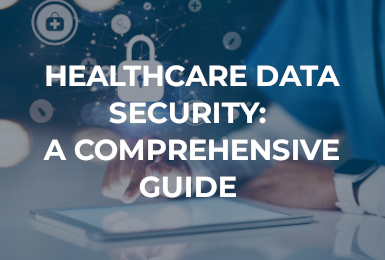Healthcare administration is an interdisciplinary field that encompasses the business side of healthcare-focused organizations, institutions, and businesses, with a focus on management and leadership, operations, human resources, finances, and healthcare policy. Generally, healthcare administrators are working to guide overall business strategy, in order to ensure smooth organizational operations and an improved patient experience.
Healthcare is one of today's fastest-growing fields: according to the Bureau of Labor Statistics (BLS), employment of healthcare occupations is projected to grow 14 percent from 2018 to 2028, much faster than the overall average. This will result in approximately 1.9 million new jobs over that time period - more jobs than any other occupational group.
This means that there's significant opportunity in the field for those looking to build a promising career - and the opportunities aren't limited to those who wish to work as practitioners or in technical roles (such as nurses, physicians, medical assistants, or technicians). If you're interested in healthcare but don't want to pursue a career in medicine, healthcare administration might be the right fit for you.
What Does a Healthcare Administrator Do?
Healthcare administration roles can vary greatly. As a professional in this field, you could find yourself responsible for a variety of tasks, including staffing, budget management and finances, administrative tasks, facility management, operations and program oversight, external relations, policy, and leadership of teams and employees. You could also choose a specific area of focus, such as accounting or human resources.
Here are some of the tasks you could be responsible for as a healthcare administrator:
Manage Operations and Staff
One of the primary responsibilities of a healthcare administrator is overseeing day-to-day operations and managing staff members within a healthcare facility. This includes coordinating departments, streamlining workflows, and ensuring that human resources policies align with best practices. Effective administrators foster a collaborative work environment, helping healthcare professionals deliver exceptional patient care while maintaining efficiency.
Financial Management and Budgeting
Healthcare administrators must balance quality healthcare services with financial sustainability. They develop and oversee budgets, manage funding, negotiate contracts with insurance companies, and find ways to reduce costs without compromising care quality. Financial management is a crucial skill in this role, ensuring that healthcare facilities operate within budget while meeting regulatory compliance standards.
Regulatory Compliance
Navigating the complexities of healthcare regulations is a key responsibility for healthcare administrators. They ensure that healthcare services comply with local, state, and federal laws, including privacy regulations like HIPAA and industry standards set by organizations such as the Bureau of Labor Statistics. Staying ahead of evolving healthcare policies and risk management requirements helps protect both patients and providers.
Patient Care Optimization
While healthcare administrators don’t provide direct patient care, their decisions significantly impact the quality of services. They implement policies that enhance healthcare systems, improve staff efficiency, and support initiatives that lead to better patient experiences. By managing healthcare facilities effectively, they contribute to positive health outcomes.
Strategic Planning and Leadership
A strong healthcare administration program equips professionals with the leadership skills needed to drive innovation and improvement. Healthcare administrators engage in long-term strategic planning, working with healthcare providers, stakeholders, and insurance companies to improve healthcare systems. They anticipate industry trends and implement changes that enhance health services and operational effectiveness.
Essential Skills for Healthcare Administrators
Success in healthcare administration requires a combination of technical expertise and leadership abilities. A healthcare administration degree provides training in these key competencies.
Leadership and Communication
Effective healthcare administrators lead teams of medical professionals, staff members, and operational personnel. Strong leadership fosters a productive work environment, while clear communication ensures seamless coordination across departments.
Financial and Strategic Management
From financial management to strategic planning, healthcare administrators must be adept at making data-driven decisions that impact healthcare systems. Budgeting, forecasting, and contract negotiations are essential to maintaining the financial health of a healthcare facility.
Communication and Interpersonal Skills
Since healthcare administrators interact with healthcare providers, patients, policymakers, and executives, strong interpersonal skills are crucial. Effective communication allows administrators to build partnerships, resolve conflicts, and implement organizational changes.
Data Analysis and Technology Proficiency
Advancements in healthcare technology require administrators to be proficient in data analysis, electronic health records (EHR) management, and health informatics. Understanding how to leverage technology improves efficiency, reduces costs, and enhances health services.
Benefits of a Career in Healthcare Administration
Earning a bachelor’s degree in healthcare administration opens doors to a rewarding and impactful career.
High Demand and Job Stability
The BLS projects strong job growth in healthcare management, as demand for qualified healthcare administrators continues to rise. With a growing aging population and evolving healthcare policies, professionals in this field enjoy job security.
Meaningful Impact on Patient Care
While they don’t provide direct patient care, healthcare administrators play a crucial role in improving healthcare systems. Their leadership and decision-making directly impact the quality and accessibility of health services.
Competitive Salary and Career Advancement
A career in healthcare administration offers competitive salaries, with opportunities for advancement into executive roles. Professionals with a healthcare administration degree can move into leadership positions in hospitals, insurance companies, and healthcare facilities.
Diverse Career Opportunities
Healthcare administrators can work in hospitals, outpatient centers, health services organizations, government agencies, and insurance companies. With experience and continued education, career growth opportunities in healthcare management are abundant.
Get Started Today Toward Your Career in Healthcare Administration
If you’re ready to take the next step toward a fulfilling career in healthcare administration, explore Champlain College’s bachelor’s in healthcare administration program. Gain the skills and knowledge needed to excel in healthcare management and make a meaningful impact in the healthcare industry, and apply today!
Download Program Guide
Learn what you can expect from our online bachelor's in healthcare administration program.

Download Program Guide
I acknowledge that, by clicking the "submit" button, I am giving my express written consent to Champlain College and its representatives to contact me about educational opportunities via email, text, or phone, at the phone number above, including my mobile phone, using an automatic dialer, or pre-recorded message. Message and data rates may apply. I understand that my consent is not a requirement for enrollment, and I may withdraw my consent at any time.






